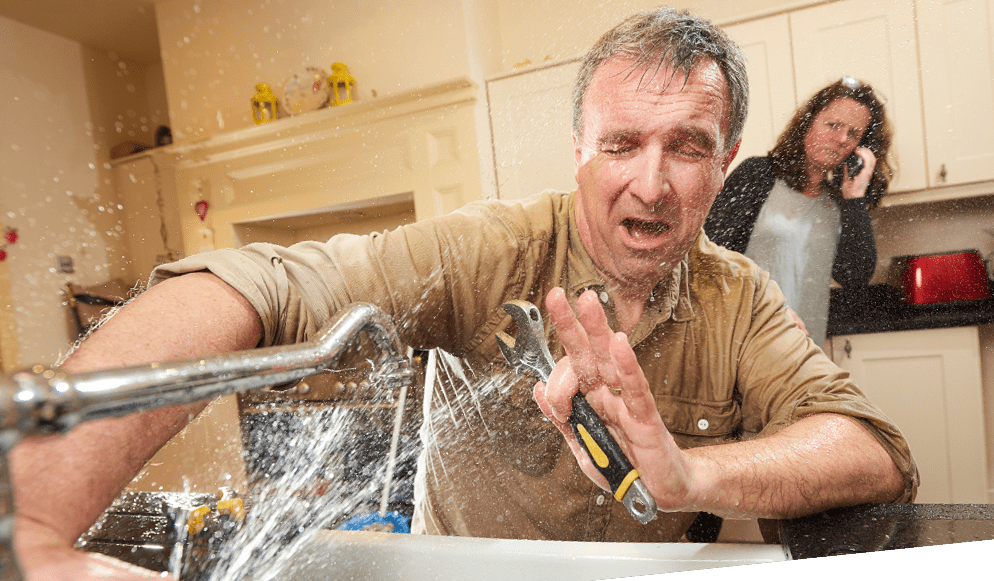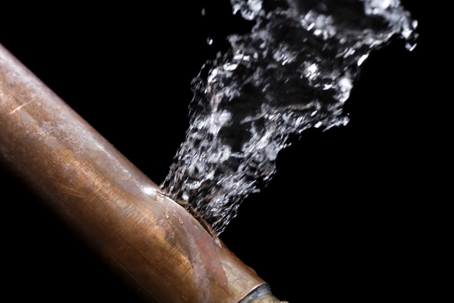This great article underneath on the subject of Expert Tips for Managing a Plumbing Emergency Until Help Arrives is especially informative. Check it out for your own benefit and see what you think of it.

Pipes emergencies can strike at any moment, creating stress and anxiety and potential damage to your home. Whether it's a ruptured pipeline, a clogged drain, or a leaky faucet, recognizing just how to manage the scenario until an expert plumbing technician gets here can conserve you from further problems. This write-up provides necessary emergency pipes tips to assist you reduce damages and regain control throughout a pipes crisis.
Switch off the Supply Of Water
The very first step in any pipes emergency situation is to shut off the supply of water. For local problems, such as a leaking tap or toilet, switch off the valve near the component. In the case of a significant leak or ruptured pipe, situate your home's main water shut-off shutoff and turn it off promptly. Knowing the location of these shutoffs ahead of time can save beneficial time during an emergency.
Address Tiny Leaks with Short-lived Fixes
Little leaks can promptly become significant troubles if left unchecked. Utilize these temporary repairs till professional help arrives:
While these fixes aren't long-term, they can aid minimize water loss and damage.
Unclog Drains Safely
A stopped up drain can be a frustrating and messy problem. Right here's just how to tackle it:
If these techniques do not function, avoid utilizing extreme pressure, as it might worsen the obstruction.
Handle Overflowing Toilets
An overruning commode can cause immediate mayhem. Right here's what you must do:
Shut Off Your Water Heater
In particular emergencies, such as a ruptured pipeline, it's important to shut down your hot water heater. This prevents overheating or damages to the device when water quits moving. Switch off the power supply to the hot water heater (electrical or gas) and let it cool down to prevent possible dangers.
Briefly Stop a Ruptured Pipeline
A burst pipe can lead to significant water damages in mins. To reduce the issue:
Call a specialist plumbing professional promptly to attend to the issue completely.
Deal With Frozen Pipeline Very Carefully
In chillier climates, icy pipes are a common emergency situation. If you think a frozen pipe:
Stop More Damage
Taking fast action to minimize damages can save you money and time in the long run. Below's how:
. Have an Emergency Pipes Package
Prepare a fundamental pipes emergency set to take care of minor problems effectively. Your set needs to include:
Having these devices available can make a considerable difference in your capacity to manage emergencies.
Know When to Call an Expert.
While quick fixes can aid momentarily, certain plumbing concerns call for immediate expert focus. Call a plumber if:.
Quickly calling a specialist makes certain the concern is settled appropriately and prevents further complications.
Conclusion.
Plumbing emergencies can be overwhelming, however with the ideal understanding and devices, you can handle the circumstance successfully till aid gets here. By switching off the water, resolving tiny leakages, and making use of short-lived solutions, you can lessen damages and maintain your home safe. Keep in mind, these suggestions are short-term services; always speak with a licensed plumber to take care of the origin of the trouble. Prep work and quick reasoning are your best allies in any kind of pipes emergency situation.
8 Helpful Tips for Managing Plumbing Emergencies at Home
If your plumbing system hasn’t failed once, wait for it because almost everyone has a story to tell. Sometimes, it could be simple emergencies such as a leaking pipe, a blocked cistern, or even a big burst pipe. In situations like this, you need to have some handy tips to save you some money and from possible damages.
Take care of minor issues early.
Sometimes, you could have avoided an emergency by taking proactive measures while it was still early. Some major plumbing emergencies can be a result of an ignored minor issue. We recommend that you have items like plumbing tapes and other related items. A plumbing tape can allow you to manage minor leaks before the plumber arrives.
Cut off the water supply.
This tip is essential in almost any type of leakage problem. For problems like minor leakages in the toilet or kitchen, turn off the supply that takes water to the affected pipes. If the leakage is a major pipe, you must shut off the supply valve to the entire building. This will help you avoid flooding your home and neighbors if you share a flat.
Know your plumbing system
Folks typically move into a new apartment without understanding the water supply around the building. This can prove disastrous if a water emergency arises and the plumber is far away. The previous tip will prove useless if you don’t practice this one. More importantly, know where your water shut-off valve is located – you’ll need that knowledge to prevent potential home floods.
Have some common handy tools
There are lots of plumbing emergencies that you can handle without hiring a plumber. That’s why you must keep some tools available always. Some tools that you can use to fix simple plumbing emergencies easily include plumbing tapes, screwdrivers, thread seal tapes, plungers, pliers, tape measures, and rubber gloves.
Insulate your pipes from cold
You’ll save yourself from many plumbing expenses if you protect your water pipes from the cold. This is because of the harmful effects that cold weather can have on your pipes. During winter, your pipes can burst from being overly expected to freezing temperatures. So, make sure insulators are there to keep the pipes working correctly.
Avoid practices that will clog your toilet.
Many people indulge in practices that can damage the plumbing system of the entire building. One of these is when they use their toilet to dispose-off garbage. They flush all kinds of things, such as paper towels, bandages, hairs, female sanitary products, etc., down the toilet. This will block your toilet in the long run, incurring unnecessary expenditures. Dump such waste in the trash instead.
Check your dials regularly.
Sometimes, there could be leakages in your home without noticing them in time. So, constantly monitor your water meter dial. If the dial is reading when there is nobody using water, this is an indicator that there is leaking. Check for leaks immediately. Call a plumber as soon as possible if you can’t find any.
https://www.constructionplacements.com/8-helpful-tips-for-managing-plumbing-emergencies-at-home/

I'm very fascinated by What to Do While Waiting for an Emergency Plumber and I hope you liked the entire entry. Are you aware of anybody else who is in the market for the niche? Feel free to share it. We treasure reading our article about .
Click Here To Read More